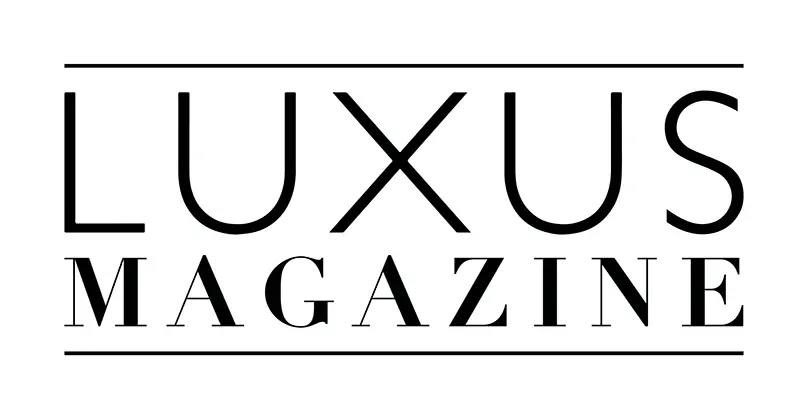Alain Bensoussan: a lawyer who knows about virtual currencies

Editor’s note: This article was first published in the print edition of the Fall/Winter 2022-23 issue of Luxus+ magazine. Click here to view the full issue.
Alain Bensoussan is an attorney at law. Founder of the law firm Lexing, he intervenes in particular in reverse technology law. He has become an expert on the issue of crypto-assets and believes that it is urgent to put in place clear rules concerning these digital currencies.
1) From a legal point of view, can crypto transactions be described as safe? Are there any regulations to protect investors in crypto funds?
Besides the fact that the volatility of crypto currencies implies that transactions are inherently risky, the market is not yet regulated. However, this legal vacuum should not last: a draft regulation on crypto-assets, known as the “MiCA” (Markets in Crypto-Assets) regulation, is being adopted at the European level. The EU Council approved it on October 22, and it should enter into force soon after validation by the European Parliament.
2) Is an additional authorization required to act as a virtual asset custodian(nano banks, crypto investment funds,…)?
As soon as a person carries out an activity related to digital assets in the broadest sense, it falls within the scope of the status of digital asset service provider (DASP), created by the “Pact” law of May 22, 2019. A decree has come to detail, depending on the services offered, the conditions for registration or the approval procedure with the AMF.
3) As is often the case, the first thing to do to help the custodian is to legally and technically qualify what a virtual asset is in order to know how to register it, value it, keep it and control it on behalf of the UCI, the FIA or the individual. Do legal interpretations vary from one country to another?
Although in France, the Monetary and Financial Code has taken the risk of giving the beginnings of a definition of digital assets, there is no definition of this notion common to all member states. This is why the MiCA regulation, which aims to harmonize the rules and the understanding of each, is so eagerly awaited.
4) Without this legislative and legal clarification, it is complicated to harmonize within the European Union the creation, active management, monitoring and control of new crypto funds. Why is it complicated to set common rules?
Setting common rules is indeed very complex because each member state has its own history, its own legal system and its own governmental bodies. Harmonized rules must take into account each particularity while ensuring that the new rules are in conformity with each European system.
5) Is the IRS aware of the operations of crypto-currency owners?
To date, there is no agreement imposing automatic transmissions of information between crypto-currency exchange platforms and the tax authorities in order to bring to their attention the transactions made in crypto-currencies. That said, users who are tax residents of France and hold accounts on crypto-currency exchange platforms (usually opened abroad) must declare said accounts, or face penalties. In addition, capital gains from the sale of crypto-currencies are taxable and must also be declared.
6) Anti-money laundering, market abuse or cybercrime topics are also to be analyzed in this area. Why this task may be complex, with probably different protocols to be established for traditional service providers (administrative agent, registrar, custodian and/or financial trading counterparty) still unfamiliar with this new investment category? For investors, are there specific legal considerations to be taken into account, in particular to avoid any risk?
Indeed, these are very similar issues that cannot be analyzed in isolation. This is why the legal regime for NSPs has evolved. One of the goals of the regulation and supervision of the cryptoasset market is to establish a traceability of transactions in order to actively fight against money laundering and terrorist financing, which are still very present on the market, notably due to the use of pseudonyms.
Read also > CRYPTOCURRENCIES: SAM BANKMAN-FRIED, FORMER FTX BOSS, ARRESTED IN THE BAHAMAS
Featured photo: © Presse
[EN] CLAIRE DOMERGUE, A SPECIALIST IN COMMUNICATION IN THE LUXURY SECTOR, HAS SURROUNDED HERSELF WITH EXPERTS TO CREATE THE FIRST MEDIA DEDICATED TO THE ECONOMIC NEWS OF LUXURY AND FASHION. THE LATTER DRAWS THE ATTENTION OF ITS READERS TO ALL THE MAJOR PLAYERS IN THESE SECTORS WHO SHARE THEIR EXPERIENCES, VISIONS AND KNOW-HOW. MORE THAN A SPECIALIZED WEBZINE, LUXUS PLUS IS A MULTI-SECTOR INFORMATION SYSTEM, WHICH HAS BECOME THE REFERENCE MONITORING TOOL FOR LUXURY AND FASHION PROFESSIONALS. OUR NEWSLETTERS CONTRIBUTE TO MAKE OUR READERS AWARE OF THE CHANGES AFFECTING THE LUXURY INDUSTRIES. THANKS TO AN INCREASED WATCH AND AN EXCELLENT KNOWLEDGE OF THE SECTOR, WE ARE INTERESTED IN THE MAIN ECONOMIC AND TECHNOLOGICAL STAKES OF FASHION, FINE WATCHMAKING, JEWELRY, GASTRONOMY, COSMETICS, PERFUMES, HOTELS, PRESTIGIOUS REAL ESTATE...********[FR] Claire Domergue, spécialiste de la communication dans le secteur du luxe, s’est entourée d’experts pour créer le premier média consacré à l’actualité économique du Luxe et de la mode. Ce dernier attire tout particulièrement l’attention de ses lecteurs sur l’ensemble des acteurs majeurs de ces secteurs qui y partagent leurs expériences, visions et savoir-faire. Plus qu’un webzine spécialisé, Luxus Plus est un système d’information multi-sectoriel, devenu l’outil de veille de référence pour les professionnels du luxe et de la mode. Nos newsletters de veille contribuent en effet à sensibiliser nos lecteurs aux mutations qui touchent les industries du luxe. Grâce à une veille accrue et à une excellente connaissance du secteur, nous nous intéressons aux principaux enjeux économiques et technologiques de la mode, la haute horlogerie, la joaillerie, la gastronomie, des cosmétiques, parfums, de l’hôtellerie, l’immobilier de prestige…



